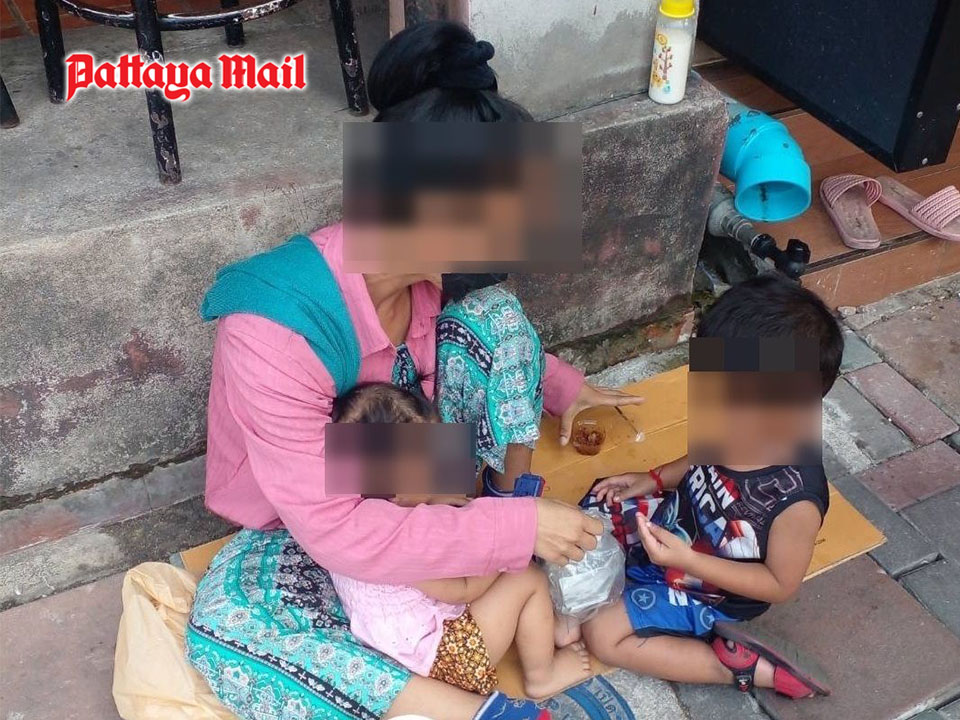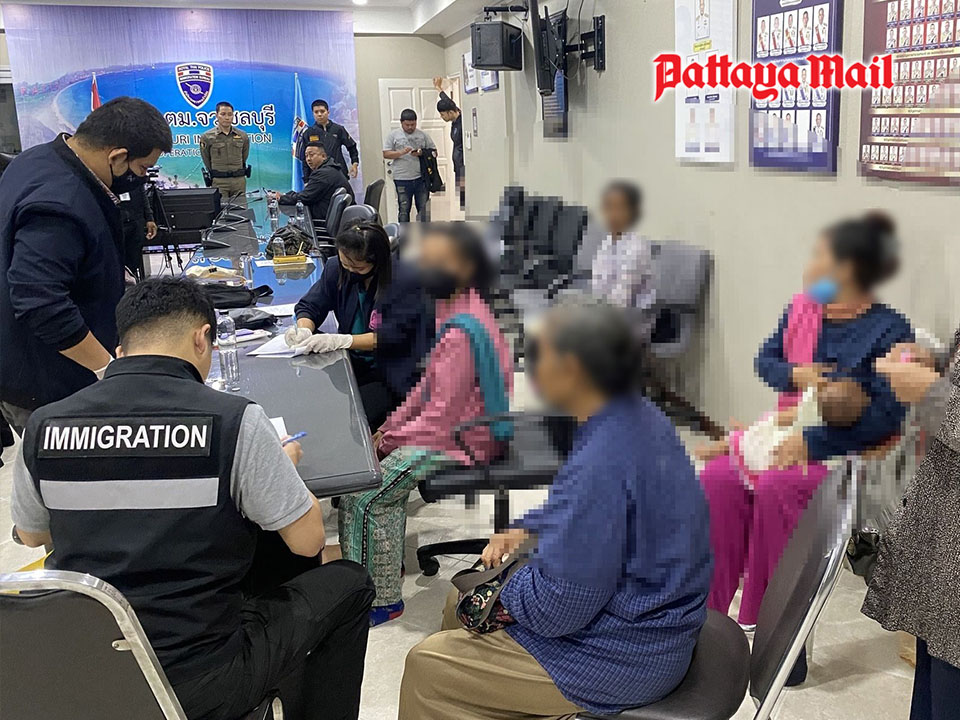
PATTAYA, Thailand – In a coordinated effort on January 31, Thai immigration and law enforcement authorities in Chonburi province joined forces to combat the issue of illegal begging in Pattaya. Led by Pol. Col. Napatspong Khotsitsuriyamani, Chief of Immigration Police in Chonburi, and Pol. Col. Nawin Thirawit, Chief of the Pattaya City Police Station, the operation aimed to preserve the positive tourism image of Pattaya.
Authorities conducted thorough inspections at various tourist spots, uncovering a group of eleven individuals, comprising seven Cambodian women and four children. The group had entered Thailand through natural border routes, including paths in Sa Kaeo, Chanthaburi, and other provinces. None of them had registered their entry through official channels, claiming to have entered clandestinely via jungle paths along the Cambodian border.
During questioning, a 36-year-old Cambodian woman from the group admitted to sneaking into Thailand with her 3-month-old daughter and 2-year-old son through the natural border route at Ban Laem village in Chanthaburi province. The group then travelled to Pattaya in a passenger van, strategically selecting tourist-frequented locations to solicit alms, resulting in an estimated daily income of around 1,000 Baht.

Preliminary charges have been filed against the entire group for illegal entry into the country, violating the Begging Control Act. They will face fines before undergoing further investigation, and if convicted, they will be deported. The three pairs of mothers and children in the group will be placed in a child care facility in Banglamung district while awaiting DNA test results to confirm their biological relationships. Any discrepancies found in the test results will be treated as potential human trafficking cases.








